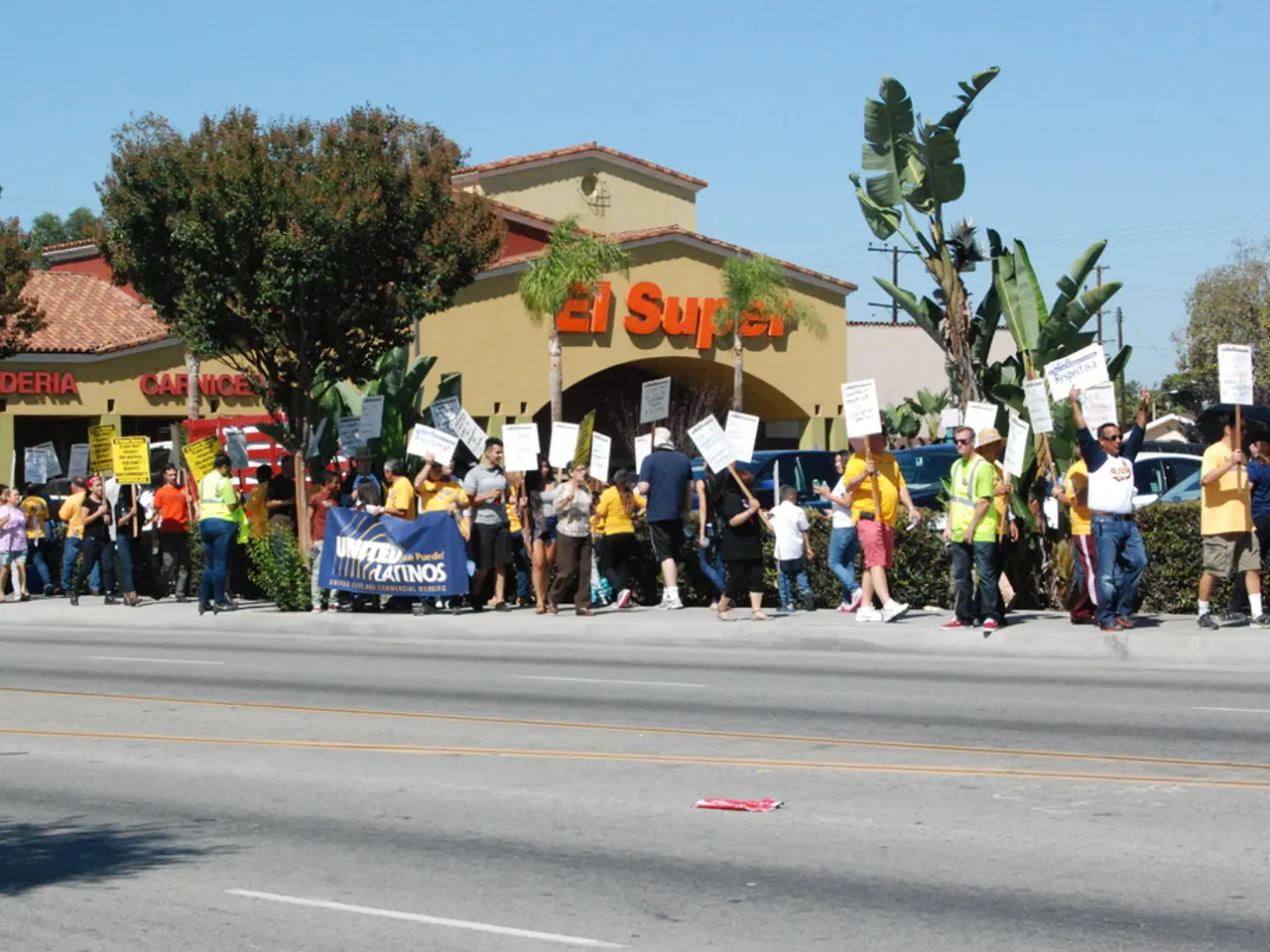Over 10,000 individuals ineligible to vote due to ID regulations, claims watchdog investigation
In May, Britain implemented a photo ID requirement for the first time during its local elections. The Electoral Commission, the body responsible for overseeing elections in the country, has conducted an interim study on the impact of this new rule.
According to the commission's findings, around 14,000 people were prevented from voting due to the photo ID requirement. However, the study also indicates a more concerning trend: significantly more people did not attempt to vote because they lacked the required ID. The initial evidence suggests that this disproportionately affects people who have disabilities or are unemployed.
The data for the study was based on incomplete information from 226 out of 230 councils where elections were held this year. The commission plans to publish a more comprehensive report in September, which will examine demographic factors in more detail.
The commission's head of policy, Craig Westwood, stated that the evidence suggests that the vast majority of voters were able to present an accepted form of ID at the May elections. He also noted that overall awareness about the need for ID was high and achieved in a matter of months.
The encouraging findings are reflective of the confidence the commission has in the ability of local authorities to implement the changes while continuing to deliver elections robustly and securely. However, Westwood also acknowledged that some correlation with factors such as ethnicity was apparent in the initial evidence.
The true figure of people denied the right to vote may be higher due to unrecorded instances of people being turned away at polling stations. Experts found that 4% of those who did not vote cited voter ID as the reason, which could equate to hundreds of thousands more.
If the total electorate and turnout for May's elections are similar to previous years, it could mean at least 400,000 people decided not to vote due to the new rules. A spokesperson for the Department for Levelling Up, Housing and Communities welcomed the report, stating that 99.75% of voters were able to cast their vote successfully.
The commission's full election report is due in September, where it is expected to provide a more detailed analysis of the impact of the photo ID requirement on various demographic groups. Until then, the debate about the balance between election security and voter accessibility continues.
Read also:
- United States tariffs pose a threat to India, necessitating the recruitment of adept negotiators or strategists, similar to those who had influenced Trump's decisions.
- Weekly happenings in the German Federal Parliament (Bundestag)
- Southwest region's most popular posts, accompanied by an inquiry:
- Discussion between Putin and Trump in Alaska could potentially overshadow Ukraine's concerns








